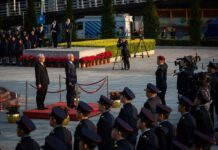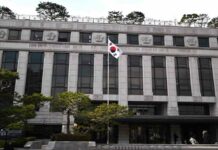BANGKOK (AP) – Thailand’s new government on Wednesday approved a measure granting temporary visa-free entry to Chinese tourists, signalling that the recovery of the country’s tourism industry is a top economic priority.
Prime Minister Srettha Thavisin said the visa exemption, which will also apply to visitors from the Central Asian nation of Kazakhstan, will be effective from September 25 until February 29 next year. He said the relevant authorities had been consulted to ensure they are ready to handle the expected surge in travellers.
China more than a decade ago became a major source of tourists to Thailand, with almost 11 million visitors in 2019, accounting for 27.6 per cent of all arrivals the year before the coronavirus pandemic devastated the tourist market.
The government proposed the measure due to concerns that the number of Chinese tourists this year might not reach the initial target of five million due to strict visa requirements. The Tourism Authority of Thailand reported that around 1.4 million Chinese tourists came in the first six months of this year.
Thailand’s economy slumped during the pandemic as its huge tourism industry virtually collapsed.

The country received about 40 million international visitors in 2019 who the government estimated generated THB1.9 trillion (USD53.2 billion) in revenue, an amount that plummeted by more than 99 per cent by 2021, according to data from the Ministry of Tourism and Sports.
Office of the Prime Minister spokesperson Chai Wacharonke said Thailand received 15 million international visitors in the first seven months of this year.
He said the government aims to draw 28 million international visitors and generate THB1.4 trillion (USD39.2 billion) in tourism revenue in 2023. Chai praised the visa exemption scheme, saying the tourism industry is “the only economic machine remaining that can be driven with hope to generate new income quickly for Thailand”.
Besides the visa exemption, other measures the Cabinet approved included a reduction in electricity fees and diesel prices, as well as a three-year debt relief programme for farmers, to address the higher cost of living and other economic woes.



















































